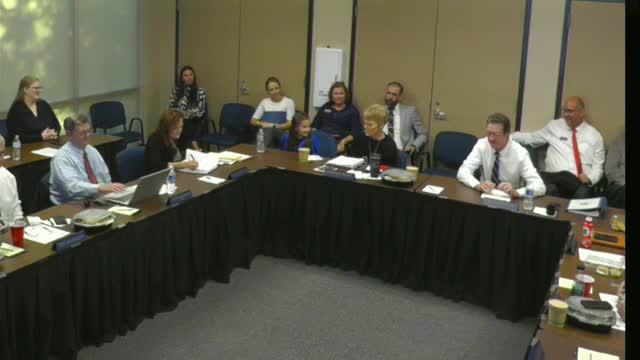Council reviews plan to use Emergent Fire for response billing; asks staff to develop fee schedule options
Get AI-powered insights, summaries, and transcripts
Subscribe
Summary
On Oct. 14 the Highlands City Council heard a presentation from fire-department staff and Emergent Fire representatives about pursuing insurance reimbursement for fire and first-response incidents. Council members signaled tentative support to have staff and the vendor develop potential fee schedules and ordinance language for later consideration.
Highlands City Council members on Oct. 14 heard a presentation on contracting with Emergent Fire, a private response- and first-response billing firm, to pursue insurance reimbursements for fire incidents and related services. The presentation was led by a city staff member identified as Pete and by Britney Fleming of Emergent Fire (also referenced in the meeting as Emergicon/Emergifier), who described how the company would bill insurance carriers on the city’s behalf.
The issue matters because the city currently bears the full cost of many fire and emergency responses. Pete explained that Emergent Fire’s team would handle paperwork, file claims with the responsible parties’ insurance carriers and integrate reporting with the city’s finance system, with no upfront or recurring fees to the city. “And the way they recoup their money is 15% commission rate from all reimbursements received,” Pete said. Fleming added, “Yes. So when we bill, it is actually only going to the insurance carrier. If at that time when we bill, an insurance company does not pay, at that time, we will not pursue the actual person himself. So it's strictly just insurance.”
Council members questioned what charges would include and how revenue would be estimated. Fleming described typical recoverable costs as personnel time, equipment use and debris removal, and said fee schedules vary by incident severity: “A level 1 MVA is around $500. A HAZMAT level 3, maybe upwards of $7,000,” she said, noting higher reimbursements for prolonged or complex incidents such as 18-wheelers or EV fires. Fleming also said collection rates vary by insurer and incident type: “For little vehicle incidents…about 70-ish percent is billable, and about 30-ish percent is collected on by insurance.”
Staff said Emergent Fire would supply sample fee schedules and a template ordinance or resolution the city could customize; the vendor would provide monthly accounts-receivable, charge, invoice and write-off reports and annual analysis. Reporting cadence described in the presentation included end-of-month reports by the fifth business day and disbursements typically direct-deposited around the 15th of the month. The vendor confirmed it bills only insurance carriers and does not pursue individual policyholders for unpaid claims.
Councilmembers raised policy and communication concerns, noting citizens already pay taxes for fire readiness. One councilmember observed, “Citizens pay taxes so that we can provide fire service,” and asked staff to clarify which calls would be billed to insurers and which would be exempt. Staff suggested that the city could choose which incident types to include and that EMS billing practice (which the city already uses for nonresidents) would be a model for some decisions.
There was no formal roll-call vote on a contract or ordinance on Oct. 14. After questions and discussion, the council expressed consensus to direct staff to pursue further review, work with Emergent Fire to assemble recommended fee schedules and prepare draft ordinance or resolution language for a future agenda. The city asked the vendor and staff to return with sample rates, historical call-data analysis if available, and recommended ordinance text.
Next steps (as stated in the presentation and by staff): staff will coordinate with Emergent Fire to compile recommended billable services and fee schedules, generate the vendor reports for council review, and present draft ordinance/resolution language and estimated financial impacts at a later meeting for formal action.
